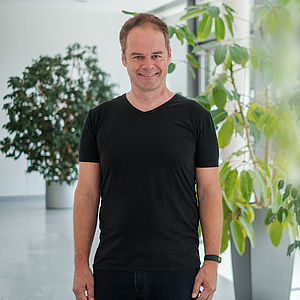“The large number of sources on the internet and on the social networks is making it increasingly difficult for people to assess the quality of the information and be able to distinguish hard facts from “fake news”. In the “post-fact era”, facts and opinions have been levelled out for several years. Untruth and lies have now become structurally acceptable in all political systems. In various projects, I am addressing the conditions and consequences of disinformation and exploring the question of what the consequences of the diminishing knowledge about professional editorial journalism and its services are for the ecosystem of social communication and the functionality of democracy. In the process, I am observing both the originators of the disinformation and the users, without losing sight of the editorial shift and the new, centralised subject management systems in journalism.”
More about the research
Professor Ralf Hohlfeld’s research focuses include empirical journalism research, media change and disinformation in the digital society.
Publications
- Hohlfeld, Ralf et al. (2021): Communicating COVID-19 against the backdrop of conspiracy ideologies: HOW PUBLIC FIGURES DISCUSS THE MATTER ON FACEBOOK AND TELEGRAM. ResearchGate. https://doi.org/10.13140/RG.2.2.36822.78406
- Lehner, Lea Sophie & Hohlfeld, Ralf. (2021): ‚Das System heißt Mensch‘. Eine Studie zum crossmedialen Arbeiten in den Redaktionen lokaler Radiosender in Niederbayern. In: Markus Behmer & Vera Katzenberger (Hg.): Vielfalt vor Ort: Die Entwicklung des lokalen und regionalen Rundfunks in Bayern. (S. 435-456). Bamberg. Bamberg University Press. dx.doi.org/10.20378/irb-49753
- Hohlfeld, Ralf / Harnischmacher, Michael / Heinke, Elfi / Lehner, Lea / Sengl, Michael (Hg.) (2020): Fake News und Desinformation. Herausforderungen für die vernetzte Gesellschaft und die empirische Forschung. Baden-Baden.
- Hohlfeld, Ralf (2020): Wahr oder falsch? Eine empirische Untersuchung zur Wahrnehmung von »Fake News« und echten Nachrichten in der politischen Kommunikation. In: Ralf Hohlfeld et al. (Hg.): Fake News und Desinformation. Herausforderungen für die vernetzte Gesellschaft und die empirische Forschung. (S. 179-201). Nomos: Baden-Baden
- Hohlfeld, Ralf (2020): Die Post-Truth-Ära: Kommunikation im Zeitalter von gefühlten Wahrheiten und Alternativen Fakten. In: Ralf Hohlfeld et al. (Hg.): Fake News und Desinformation. Herausforderungen für die vernetzte Gesellschaft und die empirische Forschung. (S. 43-60). Nomos: Baden-Baden
- Hohlfeld, Ralf / Harnischmacher, Michael / Heinke, Elfi / Lehner, Lea / Sengl, Michael (2020): »Gates noch?« – Die Antwort auf den Systemfehler Desinformation könnte der Gateadvisor sein. In: Ralf Hohlfeld et al. (Hg.): Fake News und Desinformation. Herausforderungen für die vernetzte Gesellschaft und die empirische Forschung. (S. 9-20). Nomos: Baden-Baden
- Hohlfeld, Ralf (2018): Crossmedialität im Journalismus. In: Kim Otto & Andreas Köhler (Hg.): Crossmedialität im Journalismus und in der Unternehmenskommunikation. (S. 17-42). Wiesbaden: Springer VS.
- Müller, Philipp & Hohlfeld, Ralf (2017): How Journalists Think about Media Effects – And Why We Should Care. In: Atlantic Journal of Communication, 25 (2), S.88-100. doi.org/10.1080/15456870.2017.1286343
- Hohlfeld, Ralf (2016): Journalistische Beobachtungen des Publikums. In: Klaus Meier & Christoph Neuberger (Hg.): Journalismusforschung: Handbuch für Wissenschaft und Studium (2., aktualisierte und erweiterte Auflage, S. 265-286). Baden-Baden: Nomos.
- Hohlfeld, Ralf / Hahn, Oliver / Knieper, Thomas (Hg.) (2015): Digitale Öffentlichkeiten. Wiesbaden
- Hohlfeld, Ralf/ Kendlbacher, Ralph / Hahn, Oliver (Hg.) (2015): Freedom of the Media – Freedom through Media? Bochum, Freiburg.





